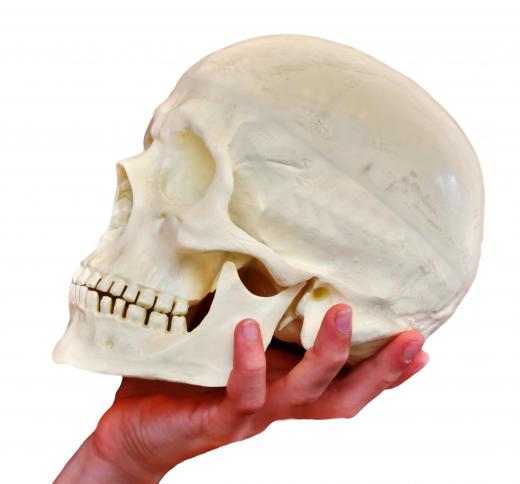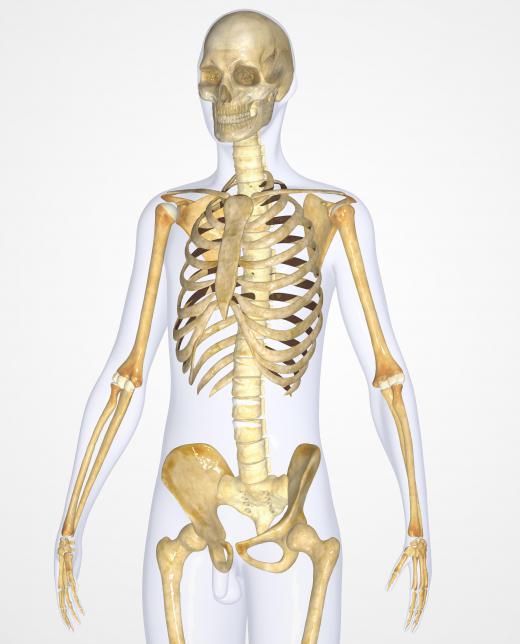What Is Forensic Anthropology?
 Jessica Ellis
Jessica Ellis
Forensic anthropology is the study of skeletal remains, used to determine information about the identity and manner of death of the deceased. This type of anthropology differs from osteology, the general study of bones, in that the findings are used for legal cases and criminal investigation. Part scientist and part historian, a forensic anthropologist trains for many years to be able to understand the subtle information conveyed by organic remains.
Though practice of forensic anthropology dates back for centuries, the theories and methods did not truly coalesce into a scientific practice until the early 20th century. Large-scale wars with massive casualties played an important part in the solidification of this branch of anthropology, as skilled scientists were often needed to help identify the decomposed or partial remains of thousands of soldiers and civilians. Through this unfortunate need, the true scientific methods of the field were quickly developed, leading to increased application of anthropology in the world of criminal investigation.

When a forensic anthropologist is presented with remains, he or she may do a variety of tests and measurements to determine information about the skeleton. First, if the remains are badly decomposed, tests may be done to determine whether the remains are human or animal. With more complete skeletons, various details can be estimated or determined, such as the gender, age, and height of the deceased person. Race can sometimes be accurately determined, and the date of death can occasionally be approximated.

In legal cases, a forensic anthropologist can help read skeletal clues to determine contributing factors to the person's death. For instance, signs of blunt trauma, fragments of bullets, or cuts and scars that indicate stabbing can sometimes be found in an examination. Forensic pathologists, rather than anthropologists, are typically legally responsible for determining the exact cause of death, but the anthropologist's findings may be critical in making this determination. Several forensic investigators, including anthropologists, may work together on a case to come up with the most accurate results. As part of an investigation, an expert in forensic anthropology may need to submit legal briefs or serve as an expert witness in court.
Training for a forensic anthropologist may take more than a decade. Most professionals in the field obtain undergraduate and graduate degrees in physical anthropology, and may spend many years in apprenticeships and basic jobs before becoming fully qualified to act as authorities on the subject. Jobs in forensic anthropology are typically found in military organizations, medical research facilities, coroner's offices, and educational institutions.
AS FEATURED ON:
AS FEATURED ON:












Discussion Comments
@bythewell - I think it would be quite frustrating not to be able to be the authority on what happened to the person, though. They aren't allowed to declare cause of death or anything, they have to leave that up to the pathologist.
In other ways, that would be a relief I suppose because it would be less responsibility, but if I had worked really hard on figuring out a particular case it would annoy me if someone else had to make the final decision.
I suppose that you could always make the jump from one job to the other, but I think you'd have to do another bunch of schooling in order to accomplish that.
Forensic anthropology is quite an interesting job as long as you enjoy being precise and careful. It's not quite as exciting as they might show it in those crime shows on TV. You don't just come up with theories within minutes and get results back in hours, it takes a long time to get anything done and everything has to be done with extreme care so as not to contaminate any evidence.
That said, it's incredible what you can find out from just bones if you have the expertise. And forensic anthropologists get to work on historic findings as well sometimes which can add something to the job as well.
Post your comments